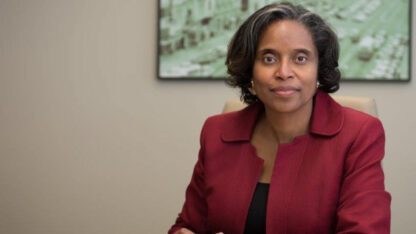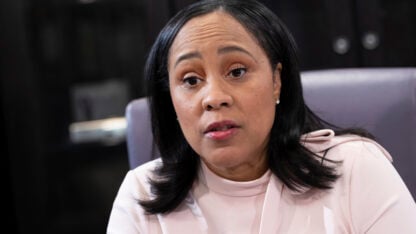Education Summit Addresses Student Preparation

Members of Georgia’s business and education communities held a summit in Atlanta Thursday to discuss what experts call a big challenge: how to best prepare students for college and careers.
Hear the audio version of this story.
Camaraderie and chanting is typical in KIPP schools like KIPP STRIVE in Atlanta’s West End neighborhood. The KIPP STRIVE campus houses a middle school and kindergarten and first grade classes, with plans to expand.
KIPP stands for the Knowledge is Power Program. It’s a national charter school initiative that has eight schools in Atlanta. Students attend class from 7:30 a.m. to 5 p.m. Tawnie Johnson, KIPP STRIVE's operations manager, says KIPP emphasizes academics.

“We really focus on independence, preparing for high school and college, and turning their mindset towards that,” she says.
That’s been a challenge for many Georgia schools. Last year, just over 20% of the state’s college freshmen enrolled in remedial classes. Those classes are costly in more ways than one, according to Steve Dolinger. He's the president of the Georgia Partnership for Excellence in Education, which sponsored the summit.
“If a college student takes one remediation course, they tend not to graduate on time,” Dolinger says. “If they have to take 2 or 3, the odds are they will not graduate from college. So, it’s not just that investment, it’s almost a lost investment trying to keep those students in college.”
And businesses would like to see more Georgia students graduating from high school prepared for college or the workforce. Ryan Mahoney is with the Georgia Chamber of Commerce. He says education is their primary focus.
“If you talk to a small businessman or small businesswoman, if you talk to the Fortune 500, every one of them tells us that education is the most important issue to them, more than healthcare, more than transportation, though those are certainly key and things that we work on, because they know that’s their pipeline,” Mahoney says. “That’s where their workforce is going to come from.”
The state has a goal to increase the number of its college graduates in the next seven years. Officials estimate Georgia will need an additional 250,000 graduates to meet workforce needs.
9(MDAxODM0MDY4MDEyMTY4NDA3MzI3YjkzMw004))








